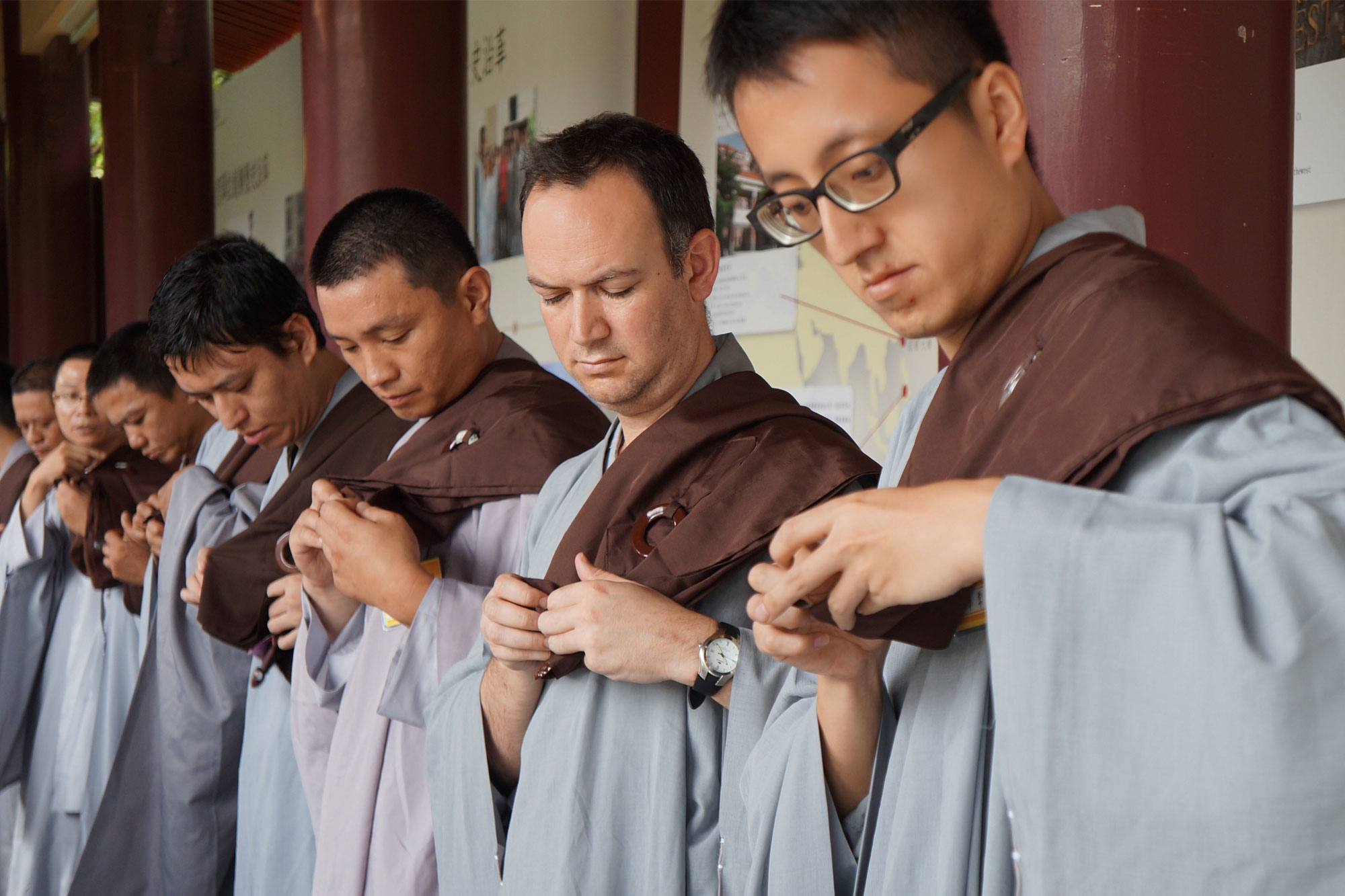A new article published by Senior Lecturer in Social Anthropology, Dr Jonathan Mair, explains the appeal of a rapidly growing Chinese religious practice. The ‘Short Term Monastic Cultivation Retreat’ has been held several times a year by Fo Guang Shan Taiwanese Buddhist organisation since the 1980s. However, in recent years, it has been held in Chinese communities around the world in countries as far flung as Australia and the USA. It now also takes place regularly in temples in the Chinese mainland.
Dr Mair’s article, co-authored with Professor James Laidlaw from the University of Cambridge and published in Cultural Anthropology, is based on his participation in the event in temples in Taiwan and France, and on interviews conducted in Singapore and Malaysia. It describes the surprising way in which the practice, in which lay Buddhists experience the life of a monk or nun for seven days, makes participants more aware of their shortcomings, with a view to enabling them to overcome them and become better people.
Much of the time participants spend in the Retreat is taken up with learning and practising physical disciplines such as specific forms of walking, special ways of wearing complex robes, of eating and so on. These require constant concentration in order to carry them out smoothly and elegantly. Losing concentration often results in conspicuous loss of poise, as the long folded cloth that is part of the outer robes unfolds, or chopsticks clatter to the floor. When this happens, as it constantly does, participants are encouraged to seek the reason for their loss of concentration.
In interviews, former participants reported that it was often unjustified anger or petty jealousy directed at fellow participants, or anxiety about their lives outside the temple that prompted their loss of attention. As the event proceeded, they found that the constant concentration enabled them to be more aware of these feelings and to overcome them, so that they were much calmer by the end of the event. They reported that the feelings of calmness and awareness of feelings of anger and jealousy persisted for some time after the event ended.
The research was funded by a British Academy/Leverhulme Trust grant and was carried out with cooperation of Fo Guang Shan. Photo is with kind permission of Life News Agency.
The article is available to read online for free here.

